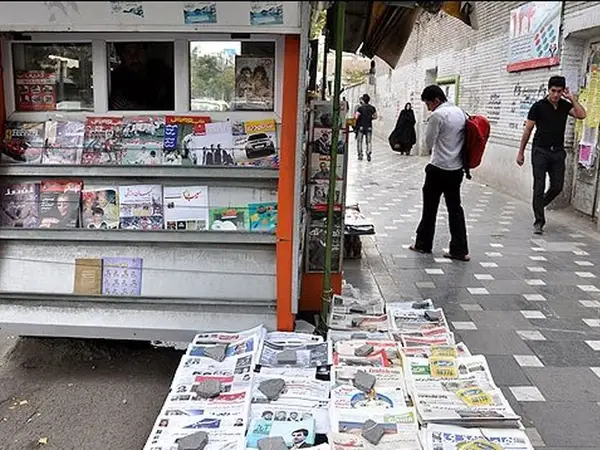Tehran's Prosecutor Ali Salehi says the number of complaints made against Iranian media has risen by 50 percent since March, mostly by government entities.
He added that during the past year out of 319 complaints, 39 cases have led to arrests and indictments of which, 20 media outlets or journalists have been convicted of various offenses and 19 have been cleared of the charges.
He added that most of the charges included publishing lies, libel and insult and in most cases a settlement has been reached through payment of fines.
Pressures on the press have been on the rise during the past months. Maryam Shokrani, a Shargh daily journalist, wrote in a tweet on June 25 that these include fabrication of cases against journalists in a systematic way. Sher wrote in another tweet the previous day that the Oil Ministry in Iran forced her to pull a story about an Iran vessel seized in international waters.
Developments indicating more pressures on the media and journalists, coincided with a meeting by journalists on Thursday where they discussed "the national media document," which highlights the need for regulating media activities and relations between the government and the media.
According to the reformist Shargh, the meeting was called by board of directors of the Tehran Province Press Association which operates as a proxy for the Journalists and Writers Trade Union, banned for nearly a decade now. The association's board members, as well as several journalists, editors, academics and cultural figures took part in the meeting.
Board chairman Abbas Abdi, a reformist journalist said that the national media document includes suggestions by the association to improve the situation of the media. He added that by offering this collection of suggestions, the association wishes to start a dialogue between with the government.
Abdi said: "Any change in Iran should start from the media. And by the word media, I mean the official media rather than unofficial [social] media." Abdi added that four group of journalists representing the print media, radio and television, social media, and news agencies have worked on the document which generally explains the status quo and offers a prospect for the future.
Academic Mehdi Mohsenian Rad said newspaper readership is very small in Iran, judging by limited circulation. He further explained that the reason for this problem is that "There is political control on the press that aims to promote the official values of the government."
Mohsenian added that the Iranian government does not recognize the role of the media as a body that monitors the behavior of various actors in society.
Economist Kamal Athari said that the problem of the media starts from the government's approach to social and economic development. In the Iranian press everything is about power rather than progress and this has been the case since the 1990s.
Ali Mirzakhani, who has been the managing editor of the economic daily Donyaye Eqtesad, confirmed Mohsenian's view about the prevailing ideological approach to media content in Iran. Nonetheless, he argued that government control over the media starts from the requirement of receiving a license to start a media venture. Anyone who cannot be trusted to follow the ideological and political boundaries of the Islamic Republic cannot receive a license to publish.
Mirzakhani also mentioned the role of cash subsidies paid by the government to the press as a tool for controlling the media. This attracts publishers who have the right connections, but no professional interest, and wish to work with journalists whose main characteristic is obedience rather than expertise, said journalist Mojgan Jamshidi.
